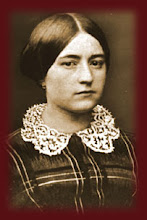Thursday, September 27, 2007
In Search of Lost Time
Wednesday, September 26, 2007
Beneath the Underdog

In honor of the fiftieth anniversary of the forced desegregation of Little Rock Central High this week, I had my students in the writing class I teach for music majors read an excerpt from Charles Mingus’s sui generis memoir, Beneath the Underdog, first published in 1971 (Mingus had memorialized the bigotry of Arkansas Governor Orville Faubus, to whom Louis Armstrong had referred in the press as an “uneducated plow boy,” in his famous tune “Fables of Faubus,” whose snide, insinuating opening riff is recognizable to jazz fans everywhere). It was actually very hard to find an appropriate passage to read in class; the book is indescribably obscene, and is full of exaggerations and outright lies, such as Mingus’s claim that he pimped his wives and girlfriends. I especially wanted the class to read Mingus’s exegesis of his own playing and compositional styles, but couldn’t find anything except a brief excerpt toward the end of the book, in a scene where he’s just been released from Bellevue and is playing a club date. Mingus uses the foil of a British interviewer coming over to his table, where he’s flirting between sets with the woman who will become his umpteenth wife, to expound for a page or so on his musical philosophy of “rotary perception,” an aesthetic borrowed from Eastern spiritual systems and also owing something, no doubt, to his drug use and mental illness. For all of its madness, offensiveness, absurdity, and ultimate disappointment, Beneath the Underdog is one of my favorite books in the whole world, written by a truly erudite and brilliant artist, one of the many in jazz who became victims of their own genius, and of their internalization of racial prejudice. Jazz in the 1940s, 50s, 60s, and 70s devoured its young.
Sunday, September 23, 2007
A Child's Introduction to the Orchestra

Good news, especially for my two older brothers. The greatest out-of-print LP ever made, Alec Wilder’s “A Child’s Introduction to the Orchestra,” is available for free downloading at the Children’s Vinyl Record Series site (thanks to Bloggerythms for the heads up). This recording was a great favorite of mine in childhood, and was probably one of those random influences that made me (not to mention my two brothers) into a musician. It introduces each member of the orchestra with a little tune sung by a singer representing the instrument, followed by a solo on said instrument; there are Antoinette the Clarinet, Newt the Flute, Mellow Fellow the Cello, even Max the Sax in a very hip number. Well, hip for a child’s recording made in the late 1950s; it will never be reissued, because it is in fact hopelessly square in an age when They Might Be Giants are cutting kids’ CDs. It is really fantastic, though. Alec Wilder’s music and arrangements, conducted by Mitch Miller, are very forward-looking, anticipating the work of Gil Evans. The singers are excellent too: a high, Irish-type tenor sings the part of Bobo the Oboe (one of the most beautiful numbers on the LP); a basso profundo sings Old Muldoon the Big Bassoon (“they call me the clown of the orchestra, but it’s not necessarily so”); the sole girl singer is a kind of legit-slash-lounge type; they all do a great job. It all sounds remarkably corny, but it’s not. I’m so happy to have rediscovered this gem of children’s music. My son is digging it hard, too.
Tuesday, September 18, 2007
Musicologist Banned
Monday, September 17, 2007
The Voices That Have Gone, Part 5: Music and Memory
(H.R. Haweis, Music and Morals, 1872)
Sunday, September 16, 2007
The Voices That Have Gone, Part 4: Burl Ives
The only things I knew about Burl Ives growing up were that he was the singing snowman in “Rudolf the Red-Nosed Reindeer,” which came on TV every Christmas, and, more importantly, that he had “named names” before HUAC, which trumped everything else if you grew up in my family. But I was allowed to have that LP anyway, so perhaps this was a rare instance in which parenting took precedence over politics.
Much later, I found out that the most famous name he had named when he was subpoenaed was that of Pete Seeger (we had some of his children’s records too, of course). Evidently Seeger forgave him; they appeared together onstage in 1993 at a benefit concert, before Ives succumbed to cancer a couple of years later.
John Rockwell, the former chief arts critic of the New York Times, said of Burl Ives's voice that “[it] had the sheen and finesse of opera without its latter-day Puccinian vulgarities and without the pretensions of operatic ritual. It was genteel in expressive impact without being genteel in social conformity. And it moved people.”
I’m about to post a really dated and corny but also interesting and nice clip of Ives singing a white gospel song.
Incidentally, the star of one of my other favorite childhood recordings, Jack Gilford, who narrated “Songs and Hums of Winnie-the-Pooh” (strictly pre-Disney), was also blacklisted in the Red Scare of the 1950s.
Monday, September 10, 2007
Dunque è proprio finita
"So it really is all over," Rodolfo says; "goodbye, dreams of love."
But, because the winter is so lonely, the lovers decide to wait until spring, when no one feels alone, to part.
(The sad thing is that they really do part; Rodolfo retreats into his writing, and Mimi finds a rich lover; but she comes home, to the poor garrett that Rodolfo shares with his friends, to die.)
Addio
This is from a live performance of Bohème at La Scala in 1979. The radiant Ileana Cotrubas is Mimi; the conductor is mad genius Carlos Kleiber. Mimi sings, "Addio"; Rodolfo whispers in disbelief, "Che? vai?" (What -- you really are leaving?) Pavarotti's expression is even more real, more nuanced than the one I described in the Karajan recording. Immediately following this scene is the famous quartet, perhaps the most poignant scene in all of opera. I'm about to post it.
Friday, September 7, 2007
The Voices That Have Gone, Part 3: In Memoriam Luciano Pavarotti
Pavarotti’s death is another terrible loss to the world of music. It is not as tragic, perhaps, or as shocking as the death of Lorraine Hunt Lieberson last year, or Jerry Hadley’s suicide earlier this summer. But somehow, the world will not be the same without Big Luciano, one of the greatest singers of the twentieth century, and one of the last of a breed of Italian lyric tenors. His incredible musicality in, say, the Act III duet from La Bohème in the famous von Karajan recording with his townswoman from Modena, the divine Mirella Freni– the way that he almost whispers, “Che? vai?” when he realizes Mimì is really leaving – is an object lesson to artists of all kinds everywhere: the verisimilitude of grief, sadness, tenderness, resignation, and regret in that brief, half-sung phrase captures all the ironic fleetingness of youth and the bitterness of youth’s impossible love affairs. Those who have read the Mürger stories on which the opera is based know that Rodolphe eventually drifts away from Bohemia and enters the world of the comfortable middle class, with nary a thought for the great loves and adventures of his impoverished salad days. I am going to listen to the von Karajan recording again and try to determine whether that, too, is in the phrase. R.I.P., Big Luciano.
Saturday, September 1, 2007
Whiskey in the jar
The first time I heard this song, it was already old. I don't mean old in the sense that it was, of course, an old song; I mean old in the form shown here, as a cover of an already very old song by a rock band. The Irish band Thin Lizzy, fronted by black Dubliner Phil Lynott, recorded their groundbreaking version of the traditional ballad in 1973, and I first heard it on a college radio station as a high school senior in the early 1980s. On that first hearing, I was filled with a strange and not unpleasant feeling of great loneliness, as if a vast plain were opening up in my soul. The despair of the song, coupled with Lynott's aggressive delivery and the mournful guitar riff that repeats throughout the song, spoke to my own loneliness in a convincing way, a way that would later be echoed by other (arguably better) music, such as Stravinsky's "Les Noces" and George Crumb's "Apparition."
I think Thin Lizzy's rock version of "Whiskey" is far superior to the rousing version by the Dubliners. It's a song sung from behind prison bars, after all, by a desperate man.










